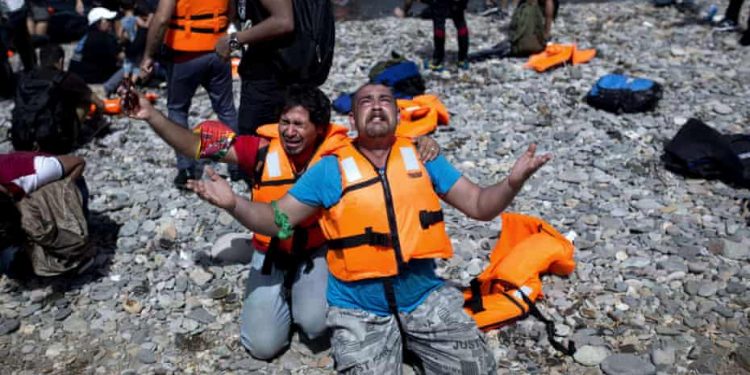As President Obama announces plans for what appears to be a long-term commitment to combating ISIS, the immigration crisis that occurred earlier this summer is gradually making fewer headlines, keeping many of us from realizing the major discrepancies in how both the United States and the international community approach these problems.
We send warplanes to the Middle East to help combat one of the most terrifying violations of human rights that our world has seen because we believe that it is our responsibility as a powerful nation to prevent these crimes. Yet, when thousands of children approach our border seeking protection from murder in their own streets, many people want to send them away and Congress consistently stalls passing immigration laws that deal with these issues head-on.
This trend is not only present in the United States, but is common throughout the international community, as well.
Many Africans wishing to flee dangerous conditions attempt to cross the border between Spain and North Africa often as many as 1,000 at a time.
In response to this, Spain was given over 13 million euros from the European Union to reinforce its borders.
The most common response worldwide to immigrants seeking refuge from their own governments, or violence within their countries, is to deport immigrants instead of helping them.
On the contrary, the most common response to combating ISIS has favored humanitarian aid and military interventions. Even Pope Francis suggested support for the use of airstrikes by the United States in order to stop the spread of ISIS in Iraq.
Why are victims of government violence and oppression only considered victims until they try to escape?
Of course, ISIS has committed unspeakable crimes against the people of Iraq and Syria, and the citizens’ awful experiences under this regime of horror are not to be diminished.
Rather, the international community should elevate the trials of those who seek refuge in their countries to this same status.
Refugees do not ask for power over the US military; they do not request our warplanes. They ask for help.
They do not even ask for us to send them aid; they came to us for it.
If we are willing to provide military aid to people across the world, why are we so reluctant to provide essential, non-military aid to the people on our very doorstep?





